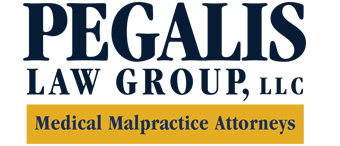-
How to Reduce Your Risk of Anesthesia-Related Injuries

While anesthesia-related injuries have become much rarer in recent years, many patients are still concerned about them—and understandably so. If you are preparing to undergo anesthesia for a medical procedure, you may be wondering if there is anything you can do to reduce your chance of suffering an injury. Here are some tips to keep in mind:
Ask your physician about potential complications.
Before you decide to undergo anesthesia, talk to your medical provider about any possible side effects or injuries that could result. Make sure that you’ve discussed each possibility, and that you fully understand the information you’re getting. Don’t be afraid to ask follow-up questions, or to express any hesitations you’re feeling.Consider your family history.
If you have any family members who have ever experienced a negative physical reaction to anesthesia, it could indicate that you are more likely to experience a similar reaction. If you find out that you do have a family history of bad reactions to anesthesia, be sure to tell your physician.Follow all pre-anesthesia instructions.
Your physician will provide you with instructions to follow prior to receiving anesthesia, and it’s important that you follow all of them. In particular, you should avoid eating before your anesthesia is given to you and refrain from taking vitamins, supplements, and anything else that might interfere with the safe administration of the anesthesia.If you have questions about medical care or treatment, or a catastrophic injury, don’t delay in calling Pegalis Law Group, LLC for a no-fee consultation! We obtain justice for our clients after hospitals, doctors, construction companies, and drivers commit preventable errors that cause harm. Reach us at (516) 684-2900.
Attorney Advertising
-
The Risks of Anesthesia
When most people think about possible accidents during medical care, they tend to overlook anesthesia. Anesthesia in itself is a safe and effective medical practice that suppresses the nervous system, thereby eliminating awareness or sensation during medical procedures.
The potential anesthesia errors exist in position-related injuries, oxygen deprivation, spinal cord injury, failure to maintain blood pressure, and other provider-related errors which can place that patient at serious risk of an anesthesia-related injury.
 Your risk of complications related to anesthesia depends on a number of factors including your general physical health. One potential problem is when a medical professional is in a hurry to administer anesthesia in an emergency and fails to take your physical health into account. Certain conditions such as obesity, obstructive sleep apnea, diabetes, high blood pressure, and health issues related to your heart, kidneys, or lungs may increase your risk of complications as can smoking, a history of heavy alcohol use, and certain medications like aspirin that increase bleeding.
Your risk of complications related to anesthesia depends on a number of factors including your general physical health. One potential problem is when a medical professional is in a hurry to administer anesthesia in an emergency and fails to take your physical health into account. Certain conditions such as obesity, obstructive sleep apnea, diabetes, high blood pressure, and health issues related to your heart, kidneys, or lungs may increase your risk of complications as can smoking, a history of heavy alcohol use, and certain medications like aspirin that increase bleeding. While anesthesia is generally very effective, about 1 to 2 people out of every 10,000 may experience a condition known as anesthesia awareness where they are partially awake during general anesthesia. Patients are often unable to move or speak and this can lead to long-term physiological issues such as post-traumatic stress disorder. Unfortunately, although not common, death occurs as a result of general anesthesia in roughly 1 out of every 100,000 to 200,000 patients.
If you are concerned about a misdiagnosis or possible medical error, contact the law firm of Pegalis & Erickson, LLC in New York. For 46 years, we have advocated for people of all ages, in order to help our clients financially and make healthcare safer for everyone. You can reach us today by calling (516) 684-2900.
Attorney Advertising
-
Protecting Your Health at a Pre-Anesthesia Visit
Any sort of surgery requires thorough preparation. Undergoing anesthesia has risks as well as complications. While sometimes the anesthesiolgist may meet the patient a few days before surgery, it is not the norm. Today it is common that the first time a patient meets the anesthesiologist is just before the operating room.
 In either case, it’s essential not to skip over important health information. Make sure that your medical team knows about any allergies and your reactions to medications in the past. During pre-operative testing, make sure all chronic diseases are listed, as well as all medications being used. If there are any issues when planning to have elective surgery, it’s possible to reschedule the surgery while awaiting additional tests to ensure safety. If the surgery is for a child, be sure to request a pediatric anesthesiologist!
In either case, it’s essential not to skip over important health information. Make sure that your medical team knows about any allergies and your reactions to medications in the past. During pre-operative testing, make sure all chronic diseases are listed, as well as all medications being used. If there are any issues when planning to have elective surgery, it’s possible to reschedule the surgery while awaiting additional tests to ensure safety. If the surgery is for a child, be sure to request a pediatric anesthesiologist! Your anesthesiologist needs your full medical history. Specifically, he or she needs to know if you’ve ever had general anesthesia before, and if so, whether you had a reaction to it. Disclose any recent changes to your health, recent surgeries, recent hospital admissions, medical conditions, and medications.
Pegalis & Erickson, LLC are leading patient advocates who handle surgical malpractice cases on Long Island, New York. Call our malpractice law firm at (516) 684-2900.
-
Understanding Anesthesia-Related Injuries
 Despite advances in medical technology and knowledge, it is possible for patients to sustain injuries because of anesthesia errors. These types of medication errors may be attributable to medical malpractice. Injuries can result when the anesthesiologist administers too little medication or too much medication. Injuries can also occur if the provider fails to monitor the patient properly or fails to recognize developing complications. Serious injury can occur if the patient is improperly positioned, is intubated improperly, or is not provided sufficient pre-operative instructions.
Despite advances in medical technology and knowledge, it is possible for patients to sustain injuries because of anesthesia errors. These types of medication errors may be attributable to medical malpractice. Injuries can result when the anesthesiologist administers too little medication or too much medication. Injuries can also occur if the provider fails to monitor the patient properly or fails to recognize developing complications. Serious injury can occur if the patient is improperly positioned, is intubated improperly, or is not provided sufficient pre-operative instructions. A wide range of injuries may occur because of medical malpractice during surgery. Problems related to the anesthesia can include permanent brain damage caused by oxygen deprivation. Sometimes, this may even result in wrongful death. Other possible injuries include damage to the larynx, nerve injury, respiratory distress, and severe allergic reactions.
The medical negligence lawyers at Pegalis & Erickson, LLC are pleased to offer effective legal advocacy services for patients who have sustained anesthesia-related injuries as a result of medical malpractice. Call (516) 684-2900 to get in touch with a medical malpractice attorney in Long Island, New York.
-
A Look at the Risk of Anesthesia Injuries
 There are many types of medical malpractice, including anesthesia injuries. These types of medication errors can sometimes result in severe complications, including lung infections, temporary mental confusion, stroke, heart attack, and death. The risk of anesthesia complications may be higher in patients who smoke, have high blood pressure, or have diabetes.
There are many types of medical malpractice, including anesthesia injuries. These types of medication errors can sometimes result in severe complications, including lung infections, temporary mental confusion, stroke, heart attack, and death. The risk of anesthesia complications may be higher in patients who smoke, have high blood pressure, or have diabetes. Rarely, some patients have been known to wake up during the surgery. This may be the result of medical malpractice, such as when the anesthesiologist fails to administer enough of the medication. This complication is known as anesthesia awareness. The patient may or may not experience pain while he or she is aware of the surroundings. Despite this awareness, the patient is unable to alert the surgical team to the problem because of the muscle relaxants administered prior to surgery. Long-term psychological damage can occur.
When you’re in need of a medical malpractice lawyer serving Long Island, New York, you can turn to Pegalis & Erickson, LLC. Call our personal injury lawyers at (516) 684-2900.
Recent Posts
Popular Posts
categories
- Uncategorized
- Infographic
- Patient Safety
- Patient Health
- Stillbirth
- Birth Injuries
- Medical Malpractice
- Medical Negligence
- Event
- Erb's Palsy
- Injury
- ER
- Video
- Cancer Misdiagnosis
- Medication Errors
- Cerebral Palsy
- Medical Negligence Lawyer
- Anesthesia Injuries
- Brachial Plexus
- Prostate Cancer
- About Us
- Men's Health
- Skin Cancer
- Breast Cancer
- Misdiagnosis
